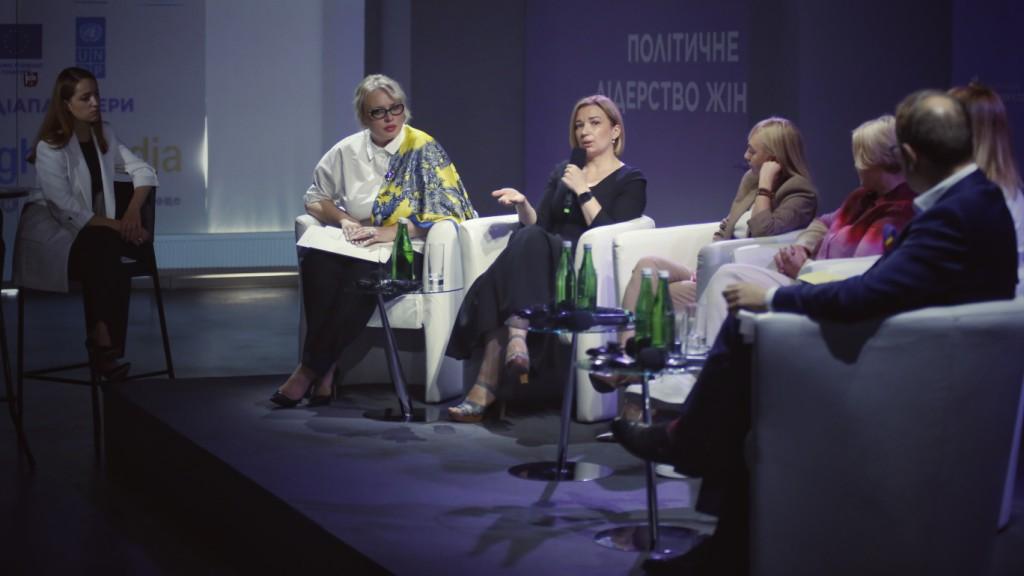Elections must not be labeled as a dirty process or a toxic topic. In fact, elections are about political participation instrumental to the democratic progress in society. Otherwise, it degenerates. Olha Aivazovska, Chair of the Board at the Civil Network OPORA shared her opinion during the Ukrainian Women’s Congress on July, 20.
“Let’s be completely honest: there is nothing dirty about elections. This is the matter of another stereotype that is rooted for our region, in my opinion, in the Soviet Union and in the post-Soviet era, when there was no real political competition. Some countries it went so deep that the Russia Federation turned into the authoritarian regime that started fighting other democracies outside their borders. In some countries, it transformed into politics becoming an elitist matter, when only wealthy well-educated people can access, or those who are part of the pools of wealthy people who have the resources. Politics and elections are just a symbolic action for many. When every citizen wants to be a real actor (I don’t mean the performers on stage but the actual doers of the action), then they have a stronger mandate. This is what democracy is all about. It is about how we are different from the Russian Federation, as we claim. The biggest mandate that Ukraine offers to everyone is a passport of the citizen of Ukraine. This function, this mandate may be implemented in peaceful legal way, through one action only – it is “election.” Elections are not about dirty processes. It is not about money. It is about human rights. It is the only way to fully and legally participate in the governance of your state, or in local self-governance. There are no other options.” she said.
According to the expert, whenever the first post-war elections take place, we are already late in the preparation. Because the adoption and update of the Electoral Code, for example, took a dozen of years. Today, to prepare for the first elections after the full-scale Russian invasion, our country needs to work on the procedural level and take into account a huge number of new challenges.
One of the basic international electoral standards implies that electoral law and the formula for the conduct of elections should be known at least a year prior to the elections themselves. “The election system should be known at least a year prior to the elections. In other words, if it is known two or three years before, there’s nothing bad about it. However, the opposition and the government, and the civils society groups that might join the politics by that time, need to know the terms and conditions, the formula for these elections to take place. How to legitimately and properly participate in the elections, so that it is no longer an elitist system,” Aivazovska reiterated.
According to the expert, we also need to review the election system in general. “In my opinion, it should keep the maximum openness and stay proportionate. No majoritarian system is going to fit us today, in the current settings, when such high numbers of people residing abroad, or outside their factual registration address. It is a colossal challenge but we need to cope with it. Because the defining factor must not be in the interest of the CEC or in the simplicity of the organization. Our mission is different: to understand that political discussion around the development of the state is the right thing to have. It would be worse to keep silent about the problem, to postpone it indefinitely, and then the pedestal will be occupied only by those who had the resources, knowledge, and access to information, with the formula they find acceptable,” she emphasized.
One of the huge challenges we need to regulate during the preparation for elections is the out of country voting, in the context of mass migration. In fact, elections provide a bridge for our citizens to return. According to the data of the sociological survey that OPORA conducted in 8 countries, Ukrainian people abroad want to participate in the political life more than they used to practice before. While in 2019, 63% of respondents currently staying abroad participated in the voting, today 80% are willing to do so. According to her, to ensure the citizens return, the voting act is not enough. They need to be able to participate in the governance of their country, to impose their agenda to political actors through real programs stimulating return, development, integration, reintegration, etc. After all, if we fail to include our internally displaced persons, or the temporary protection seekers abroad into political life, we will not have the real recovery plane.
“Election process is a natural selection. If the incumbent President and his team receive the mandate for the same volume of representation we have today, they will be leading the process. If there is anyone else with a large faction in the parliament, and they are going to offer their own agenda, there will be no other option but to have a dialogue. And it is normal, too. I am certain that everyone, the former, the latter, and the third ones that we do not yet see as political actors, will be interested to have the same thing: to make sure the country becomes the center of Europe because it can. Because never before has Ukraine been articulating on such a high level in the world,” Aivazovska highlighted.
Watch the full version of the input by Olha Aivazovska at the link
